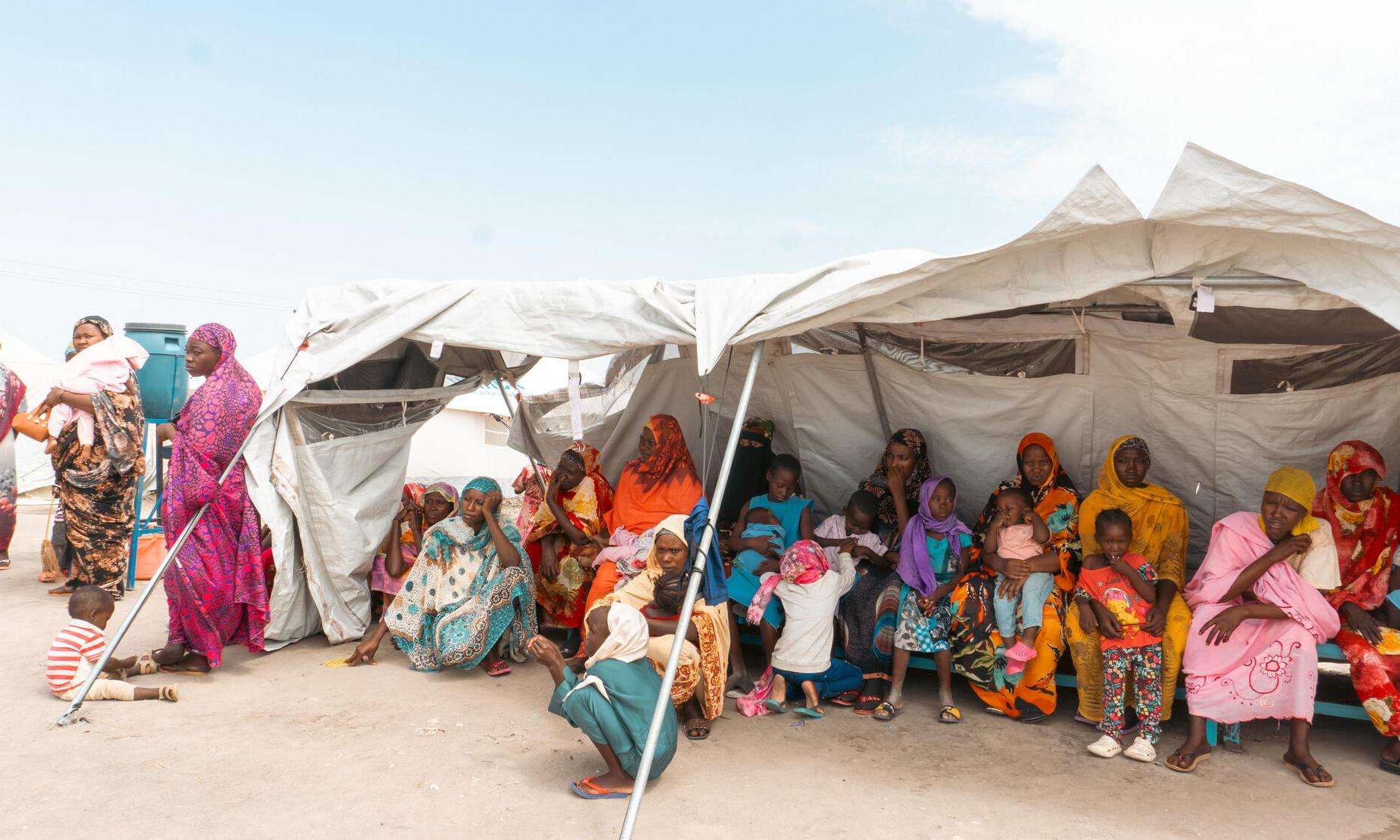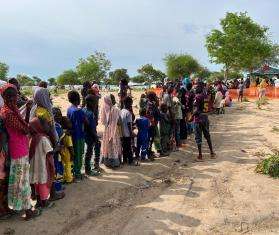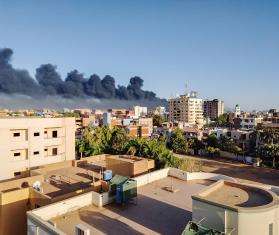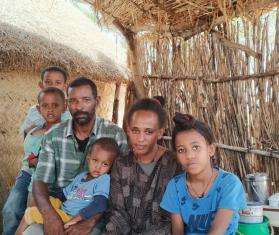More than 140,000 people have arrived in White Nile state since conflict broke out in Sudan in April. They now face huge unmet needs for food, shelter, health care, and water and sanitation in 10 camps that host around 387,000 people, according to the local authorities.
Teams from Doctors Without Borders/Médecins Sans Frontières (MSF) working in some of these camps are overwhelmed with dozens of new daily cases of suspected measles and malnutrition among children.
“Every day, more people arrive, and the numbers are increasing. In turn, this increases the need for improved health services, food, and shelter,” said Ali Mohammed Dawoud, MSF medical activity manager.
In June, MSF teams started supporting three clinics run by the Ministry of Health that provide primary health care in Um Sangour and Al Alagaya refugee camps, as well as in Khor Ajwal, which hosts Sudanese people displaced from Blue Nile state. More recently, MSF has also started supporting an inpatient therapeutic feeding center at the hospital in Al Kashafa refugee camp, where about 50 children with severe acute malnutrition have been admitted, including some who were referred from other refugee camps.
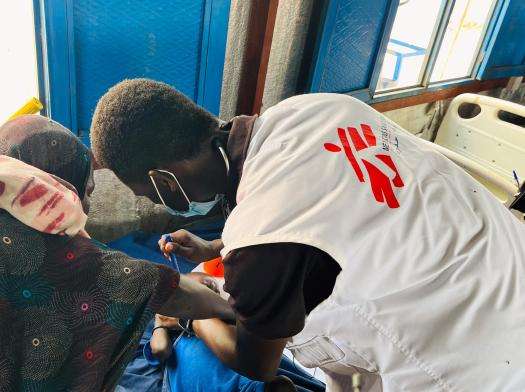
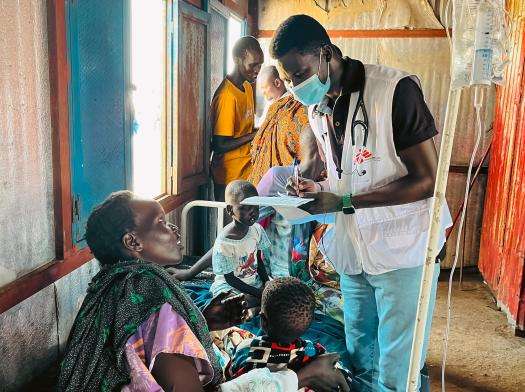
MSF teams treat refugees at a clinic in White Nile state. Sudan 2023 © Ahmad Mahmoud/MSF
Measles and malnutrition in overcrowded camps
Needs are growing in overcrowded camps like Um Sangour, a camp meant to host 30,000 people, which now hosts 70,000—more than twice its maximum capacity. “The most common illnesses impacting the community—especially children under the age of five—are measles, pneumonia, and malnutrition,” said Ali. Six deaths were recorded in the first week of June, mostly children under five.
We conduct an average of 300 to 350 consultations daily, including 30 to 40 suspected cases of measles,” Ali said. “We also have a delivery room for pregnant women and assist one to two births per day, in addition to 20 to 30 follow-ups (pre-natal care services) for pregnant women. Our routine immunization services reach 30 to 40 children per day.”
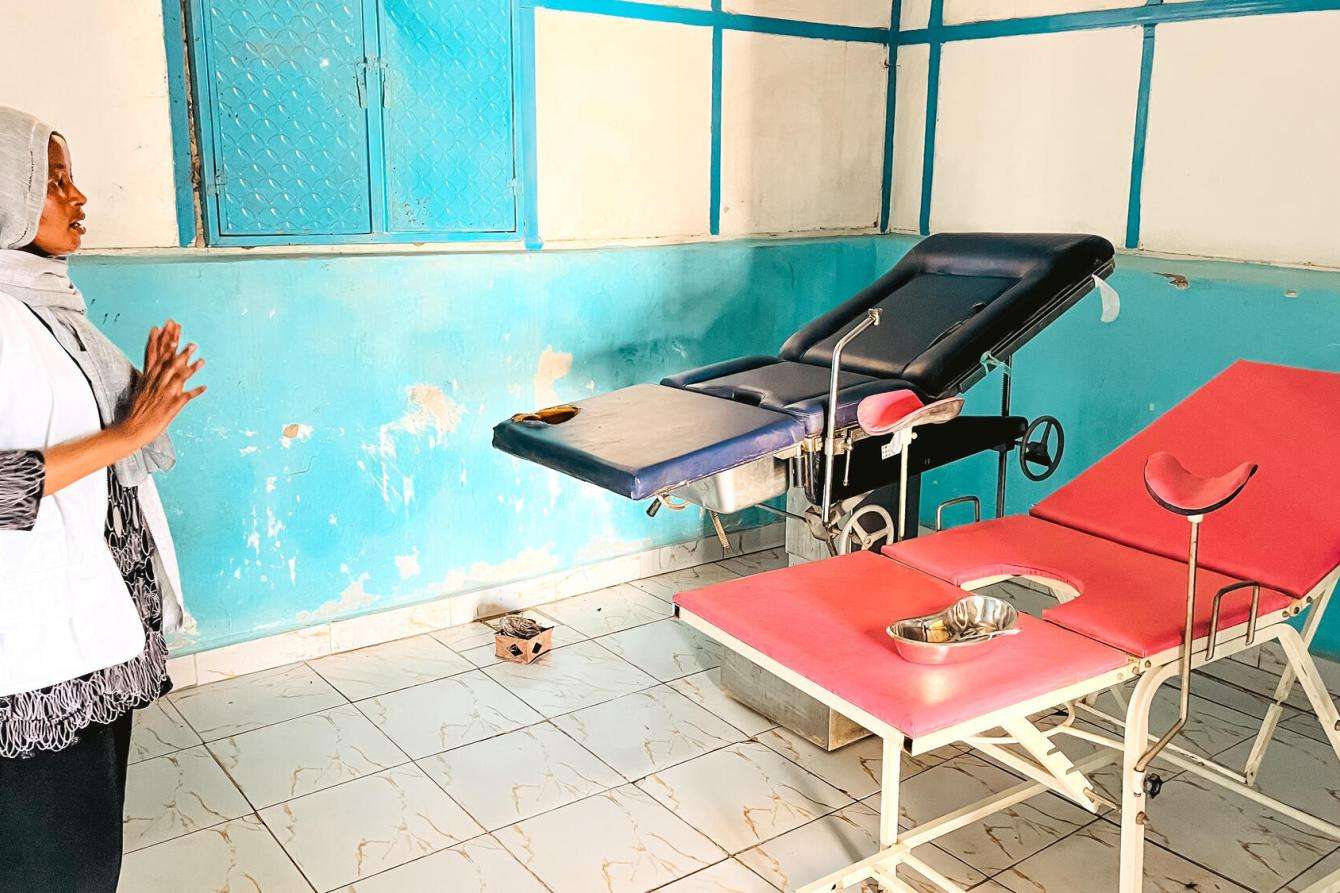
Mobilizing for measles vaccination
For several weeks MSF has been advocating for local health authorities to mobilize available measles vaccines to carry out a mass vaccination of children across White Nile state. Teams working on the ground are already overstretched and exhausted, and there is urgent need for more capacity to expand medical and relief activities.
The current conflict has left Sudan without lab capacity to identify disease outbreaks. Across the border in Renk and Malakal, South Sudan, a measles outbreak has been confirmed among people who fled the conflict. Over 100,000 people are estimated to have already crossed the border from Sudan to South Sudan.
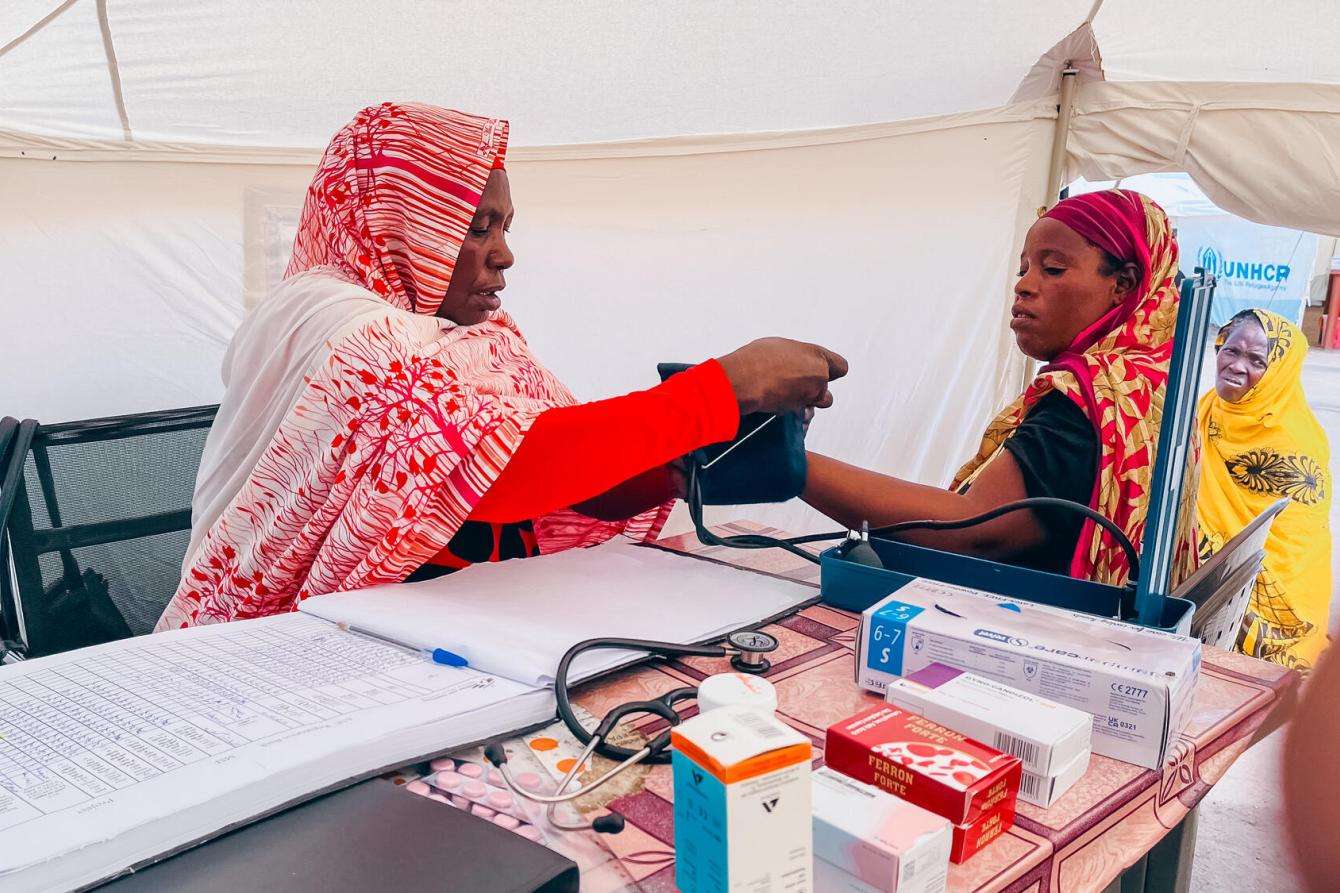
Among the measles patients that MSF treats and screens in Malakal, over 90 percent are unvaccinated, indicating that there has also been a disruption in routine vaccination program in Sudan.
“My niece is suffering from fever and diarrhea, and she's also vomiting,” said Philip*, a young man waiting with his sister and niece at a clinic in White Nile state. “Although she was prescribed medication, we couldn't find it at the pharmacy. Measles is taking lives swiftly. The fever is proving lethal. If someone falls sick in the morning, they often don't survive until the evening.”
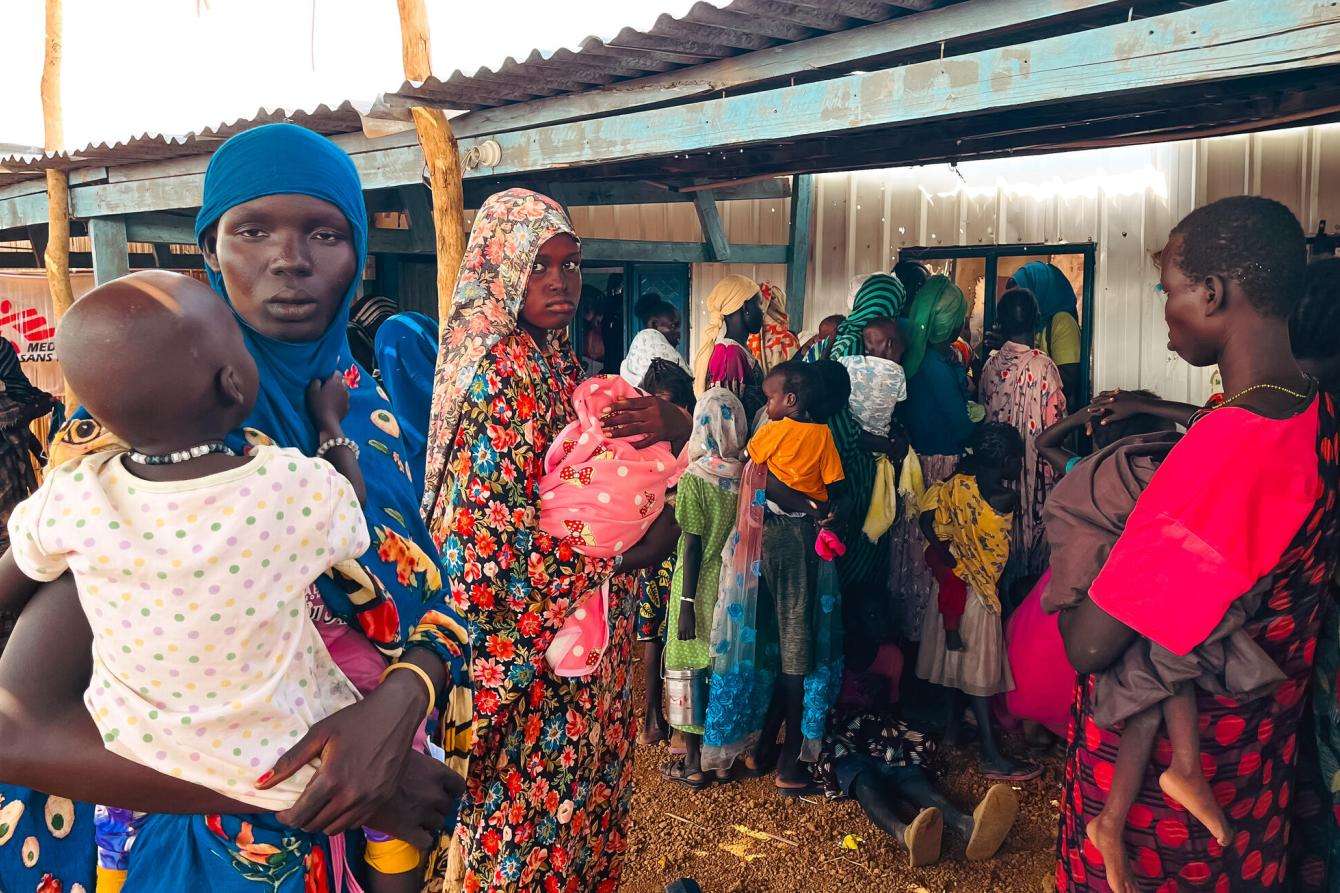
Urgent need for resources and shelter
“There was intense bombing in our neighborhood,” said Hamida, a pregnant woman waiting in the clinic with her sick child. “My family of eight fled Khartoum two months ago. Here, our situation is challenging because we're new arrivals, and we haven't received any assistance. We've struggled to find food. So far, we've only received plastic sheets. The conditions are incredibly difficult and many people are living outdoors because they lack proper shelter. If you drink the water, you’ll have diarrhea and start to vomit.”
In addition, the annual rains have already started, which may lead to a rise in waterborne diseases such as cholera and malaria. The latter is endemic to the area.

Sudan crisis response
Learn how MSF is helpingIn the overcrowded camps, people have few options to provide for themselves or their families and rely on assistance. Some are able to receive support from other refugees and relatives who have been living in the camps since before the escalation of the conflict.
As more people arrive, there is an urgent need to scale up assistance in order to curb outbreaks, including nutritional support and provision of shelter, food, clean water, sanitation, and measles vaccinations. This requires more staff, including staff experienced in managing such crises and emergencies, and securing shorter supply routes directly to White Nile state from abroad.
In just over three months of intense fighting in Sudan, more than three million people have been forced to flee their homes due to the conflict. More than 2.1 million have been displaced within Sudan. According to the International Organization for Migration, some of the highest numbers of displaced people are sheltering in White Nile state along with West Darfur, River Nile, and the Northern state.
* Name changed for privacy
